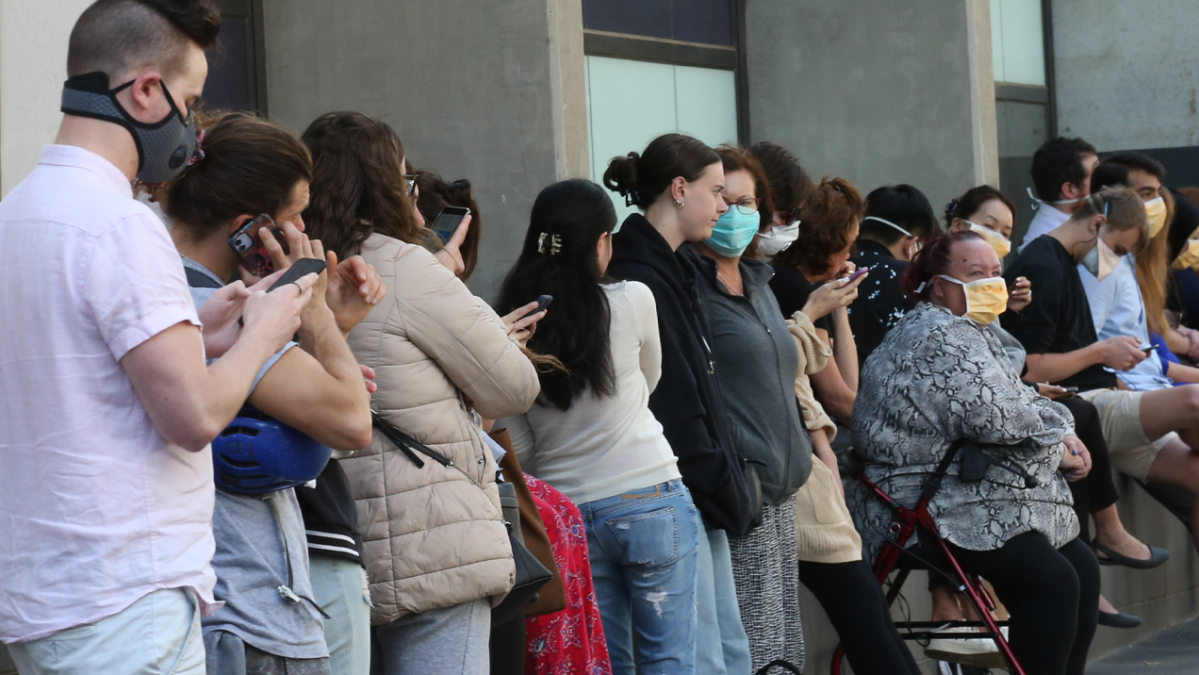
Flu season is coming up, and the symptoms are annoyingly similar to those of COVID-19.
While Australia has among the highest rates of COVID-19 testing in the world, such tests are still prioritised for those at-risk and not simply administered to anyone who puts their hand up.
The symptoms of COVID-19 are fairly straightforward: fever, cough, runny nose and shortness of breath. Severe cases may also experience respiratory distress.
However, many people with the flu will also have these basic symptoms, so having a cough doesn’t mean you should rush out to get tested for COVID-19.
Most states are advising people with acute flu-like symptoms to get tested only if they’ve recently returned from overseas or come into contact with a confirmed COVID-19 case. Tests can be done at GP clinics and hospitals.
More specifically, doctors in Australia will test for COVID-19 if you are displaying symptoms and meet at least one of the following criteria:
- you’ve returned from anywhere overseas in the past 14 days
- you’ve been in close contact with someone who has been diagnosed with COVID-19 in the past 14 days
- you’ve been on a cruise ship in the 14 days (even before you developed symptoms)
- you’re a health care or aged care worker
- you’re living in an area with a high rick of community transmission, as defined by the local public health unit
There is additional testing criteria in different states and territories.
Random testing is being done in the ACT for anyone with symptoms. In NSW, people with mild symptoms who live in coronavirus hotspots such as Bondi Beach can also get tested. Meanwhile, Victorian school teachers, childcare workers and those over 65 can also get tested if they show symptoms.
People living in nursing homes, prisons, boarding schools, military bases and remote Aboriginal and Torres Strait Islander communities will also be tested if two or more people in their community show symptoms, as a precaution.
If you think you need to be tested, don’t show up at a clinic or hospital unannounced. Doing so could risk spreading the virus.
Instead, call your local GP or hospital in advance, or call the national Coronavirus Health Information Hotline on 1800 020 080. That way, they can properly prepare to treat you.
To combat confusion, the Australian Academy of Science has released a video outlining the differences and similarities between the two diseases.
In addition to having similar symptoms, the coronavirus and the flu also spread similarly. Both are transmitted by coughing, sneezing or contact with hands or other contaminated surfaces.
However, the flu has a shorter incubation period, meaning that it can actually spread faster than the coronavirus.
Because things are moving so quickly, the Australian government has set up an online fact sheet updated daily to keep people in the loop about the disease.
Remember: if in doubt, call 1800 020 080.
If you think you may have coronavirus, either call your doctor (DON’T visit) or contact the national Coronavirus Health Information Hotline on 1800 020 080. If you’re struggling to breathe or experiencing a medical emergency, call 000.
And please remember to wash your hands frequently (for at least 20 seconds) and keep at least 1.5 metres between you and those around you.



